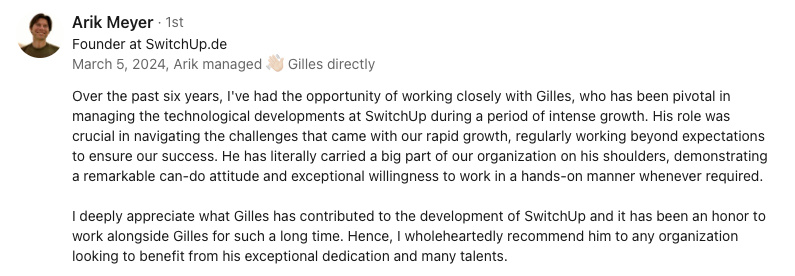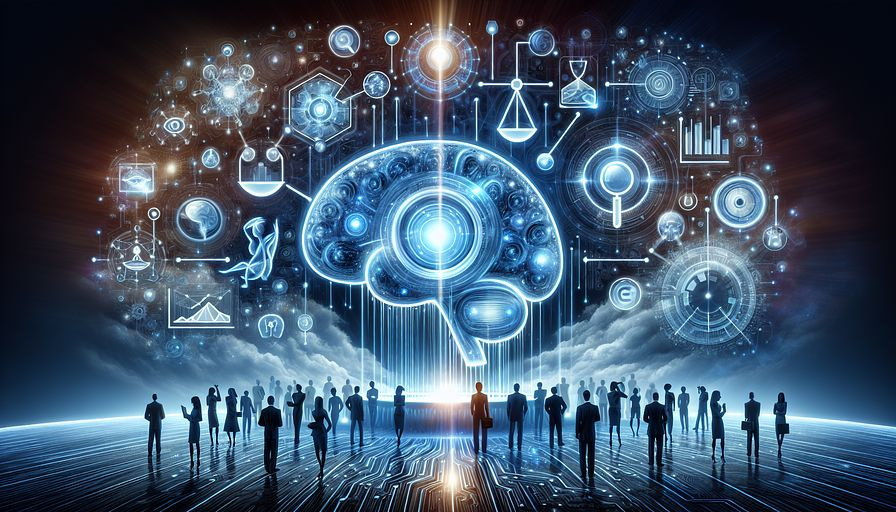Abstract:
In an era where automation is transforming industries, the significance of soft skills—such as communication, teamwork, empathy, and problem-solving—has become paramount for career success. These skills, which cannot be replicated by machines, are increasingly valued alongside technical abilities, particularly as highlighted by reports from LinkedIn and the World Economic Forum. Traditional education systems, however, often neglect these essential skills, leaving graduates unprepared for the demands of modern workplaces. This gap has prompted innovative solutions like virtual reality (VR), which offers immersive experiences that help develop these skills in risk-free environments. VR platforms like TeambuildVR simulate real-world scenarios to enhance communication, teamwork, and empathy, demonstrating their potential to address educational deficits. European institutions are leading the way by integrating VR into curricula, reporting significant improvements in student engagement and readiness for real-world challenges. Despite challenges such as high costs and technical barriers, the future of VR in education looks promising, offering opportunities for startups and tech executives to innovate and invest in this transformative approach to learning.
In a world increasingly dominated by machines, the qualities that define our humanity are becoming ever more significant. As you contemplate your career path, you might ponder how to distinguish yourself in an environment that's rapidly automating. The answer lies in soft skills—such as communication, teamwork, and problem-solving. These skills are not only about effective collaboration but are also vital for innovation and fostering a positive workplace atmosphere. With the swift pace of technological advancement, soft skills have never been more crucial. Let's explore why these skills are essential for career success and how innovative tools like virtual reality (VR) are enhancing our ability to learn them.
The Rising Value of Soft Skills in Today’s Workforce
Understanding Soft Skills and Their Increasing Relevance
The job landscape is evolving rapidly, making soft skills indispensable. These skills encompass personal traits like communication, teamwork, adaptability, and problem-solving. According to LinkedIn's Global Talent Trends, companies value these skills as much as technical expertise. This is logical, as they facilitate teamwork and success in dynamic environments. The World Economic Forum highlights a growing demand for these skills, driven by technological advancements, making them irreplaceable. My experience in tech and entrepreneurship has underscored the importance of soft skills for fostering innovation and collaboration.
The Human Edge in an Automated World
Automation and AI are reshaping industries, heightening the need for skills such as empathy, creativity, and emotional intelligence—areas where machines fall short. While technical skills remain important, the World Economic Forum's Future of Jobs report indicates that soft skills are gaining prominence alongside digital tools. During my time in Berlin, I observed that while machines excel at tasks, they lack the ability to understand people as we do. However, these skills are often neglected in educational settings, emphasizing the need for innovative learning methods.
The Educational Deficit and VR's Promise
Traditional education predominantly targets cognitive skills, often sidelining soft skills. This oversight leaves students ill-prepared for current job demands, as noted by the Journal of Educational Technology & Society. My experiences in Europe and Asia have demonstrated the critical importance of problem-solving and adaptability, yet these skills are insufficiently taught in schools. VR can bridge this gap by offering realistic scenarios where individuals can practice soft skills without the pressures of the real world.
Identifying Challenges in Traditional Education Systems
Neglect of Essential Soft SkillsEducational institutions frequently prioritize technical skills over soft skills, creating a gap that impacts how well new graduates integrate into the workforce. The Journal of Educational Technology & Society highlights this imbalance. In my professional experience, I've found that while cognitive skills are crucial, effective communication and teamwork are indispensable. This educational shortfall means new graduates may possess technical prowess but lack vital interpersonal abilities.
The Skill Gap in New GraduatesNew graduates often enter the workforce with strong technical skills but lack essential interpersonal abilities. My experience managing diverse teams has shown that soft skills are crucial for navigating today's business landscape. The World Economic Forum notes that as automation assumes routine tasks, human-centric skills are what distinguish professionals. This underscores the urgent need for educational institutions to incorporate soft skills training.
VR as a Solution for Skill DevelopmentThe integration of VR in education is transforming how we teach soft skills. VR provides immersive experiences where learners can practice and enhance these skills in a risk-free environment. Research in Computers & Education demonstrates that VR increases engagement and aids in developing communication and teamwork skills. This approach is not only effective but necessary in our complex global work environments.
Exploring VR Applications for Soft Skills Development
Enhancing Communication and Teamwork Through VR
Virtual reality is revolutionizing the enhancement of communication and teamwork. Platforms like TeambuildVR offer experiences where individuals must collaborate to solve problems, simulating real-life teamwork. For example, in a virtual maze, you and your team must strategize and communicate to find an exit. These exercises are not merely about navigating virtual spaces but also about mirroring real-world team dynamics. This method is excellent for fostering collaboration and communication skills.
These VR experiences extend beyond basic teamwork, equipping individuals for complex communication challenges. By simulating real interactions in a controlled environment, users can practice speaking and listening in various scenarios. For instance, a VRChat might place you in a negotiation where you must articulate your points while considering others' perspectives. This type of practice is invaluable today.
The effectiveness of VR lies in creating intricate teamwork and communication strategies, essential in modern workplaces. Key benefits include:
- Realistic Practice Settings: Provides authentic practice environments.
- Risk-Free Learning: Permits mistakes without real-world repercussions.
- Varied Scenarios: Prepares users for diverse interactions.
These advantages make VR indispensable for developing soft skills, offering significant improvements for contemporary work environments.
Building Empathy with VR
VR has a unique capability to cultivate empathy by allowing users to experience life from different perspectives. Scenarios like those at Stanford University enable individuals to see through the eyes of a homeless person, enhancing empathy and prosocial behavior. These interactions offer emotional depth that traditional methods cannot match.
VR experiences forge strong emotional connections that transcend cultural boundaries. One scenario might place you in a domestic violence situation, experiencing the associated emotions. Research from the University of Barcelona shows these experiences enhance empathy, crucial in today's interconnected world.
The immersive nature of VR leads to enduring empathy, making it a powerful tool for teaching empathy. Jeremy Bailenson's studies highlight how VR's vivid simulations evoke deeper reactions than other methods. These effects demonstrate VR's unique ability to build and sustain empathy, offering a transformative approach to developing soft skills.
Problem-Solving and Critical Thinking in VR
Utilizing VR in education and training enhances problem-solving and critical thinking by immersing participants in detailed scenarios. For example, a VR crisis management simulation demands strategic thinking to overcome challenges. This method not only engages learners but also promotes active learning. Studies in Computers & Education show that immersive exercises help learners address complex issues effectively.
VR allows learners to test different solutions without real-world risks. Participants can attempt various strategies, learning from each trial. This experiential learning is emphasized by the Journal of Educational Technology & Society, which illustrates how it refines analytical skills. Imagine troubleshooting a technical issue in VR—each decision shapes the outcome, providing valuable lessons.
What sets VR apart is real-time feedback, which refines critical thinking and problem-solving. Research in Virtual Reality shows that this feedback loop is crucial for learning, helping users adjust their strategies. These dynamic experiences prepare participants for real challenges, enhancing their problem-solving mindset and confidence.
Success Stories: European Institutions Leading the Way
Innovative Schools Adopting VR for Soft Skills
Several European schools are at the forefront of using VR to enhance soft skills. Reports from these institutions indicate positive outcomes for both educators and students. For instance, IE Business School in Spain employs VR in leadership courses, enabling students to practice communication in virtual boardrooms. The University of Copenhagen uses VR to bolster teamwork among students. These schools exemplify the effectiveness of VR in soft skills training, setting benchmarks for others to follow.
Impactful VR Modules and Their Benefits
European institutions employing VR have not only improved academics but also increased student engagement and learning outcomes. They've developed specific VR experiences focusing on areas such as:
- Teamwork: Virtual escape rooms that require collaboration to solve problems.
- Communication: Role-playing in virtual boardrooms to enhance negotiation skills.
- Empathy: Simulations that help students understand diverse perspectives.
These modules replicate real-world scenarios where students can practice skills without risks. Educators report significant improvements in student engagement and motivation, key factors in learning success.
Boosting Confidence and Real-World Readiness
Students utilizing VR in European schools feel more confident and prepared for real-world challenges. They often mention that VR's immersive nature allows them to confront situations that would be daunting in reality. For example, a student noted, The VR exercises in negotiations were so realistic that I feel ready for actual business meetings. Despite challenges like high costs, the benefits of VR in preparing students for careers are evident.
Overcoming Barriers in VR Implementation
Technical and Cost Challenges
Implementing VR in schools presents significant challenges, primarily due to high costs and technical issues. The expense of VR equipment and software can be a barrier, as highlighted in the Journal of Computer Assisted Learning (2021). Creating realistic VR simulations also demands substantial resources and expertise. Despite these challenges, partnerships and investments in adaptive hardware offer potential solutions.
Accessibility and Inclusivity
Ensuring VR accessibility involves developing inclusive content and investing in adaptive technology like screen readers. Many schools collaborate with developers to create VR experiences that cater to diverse needs. Workshops and inclusive design principles ensure VR is accessible to all, with strategies such as:
- Adaptive Content Creation: Ensures content suits varied learning needs.
- Collaborative Development: Encourages partnerships for accessibility.
- Regular Feedback and Updates: Utilizes feedback for continuous improvement.
These efforts aim to make VR a universal educational tool, benefiting all learners.
The Future of VR in Soft Skills Education
Evolution of Soft Skills Development
As VR technology advances, it will play a more significant role in teaching soft skills. This offers numerous opportunities to enrich learning for educators and students alike. The future of education is poised to be more interactive and personalized, thanks to these technological advancements.
Future VR developments will likely include more personalized scenarios, tailored to students' individual needs. This opens new avenues for educational innovation, making learning more engaging and effective.
Implications for Startups and Tech Executives
The rise of VR in education presents tech startups with opportunities to innovate and make an impact. By creating VR applications focused on soft skills, startups can address contemporary educational needs. Strategic investments and partnerships are essential to capitalizing on these opportunities, enabling the creation of impactful educational tools.
For executives, the focus should be on strategic investments and partnerships to harness VR's potential in education. As VR technology evolves, maintaining agility and openness to new possibilities is crucial. The journey towards VR-enhanced education demands adaptability and vision, offering exciting opportunities for growth and impact.
You might be interested by these articles:
- Personalized Learning in VR
- Revolutionizing Classrooms with VR Tech
- Transforming Learning Through VR
See also:
- Gilles Crofils: Skills, Industries and Markets
- Revolutionizing Safety with Swarm Robotics
- Transforming Workspaces: How European Startups Boost Employee Well-being with Tech
- Mastering EU Regulations for Grid Computing Success
- Space Debris Management
- Harnessing IoT for Next-Gen Connectivity
- CTOs vs. AI Threats: Securing the Future





